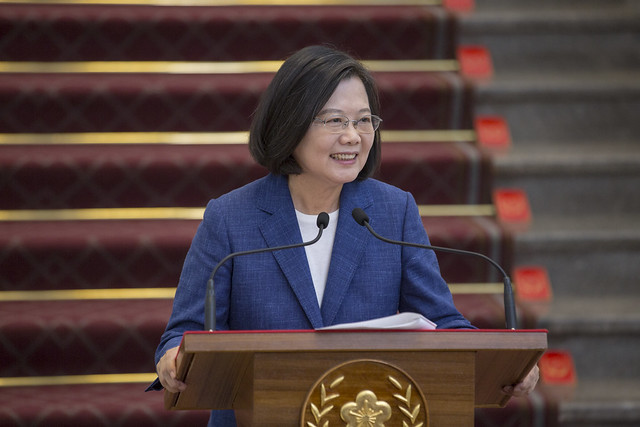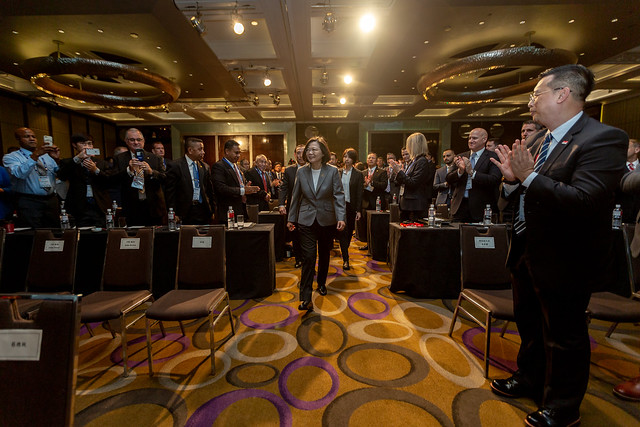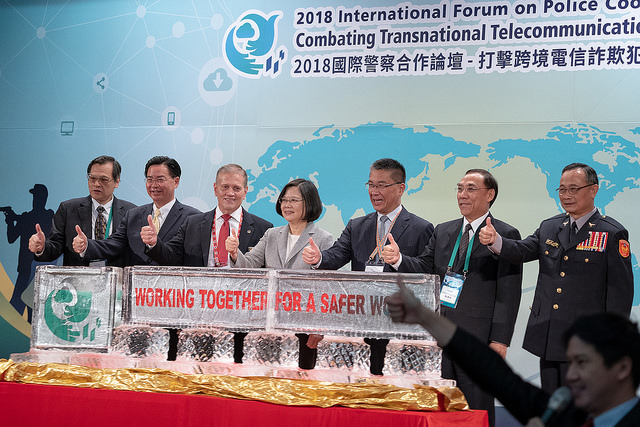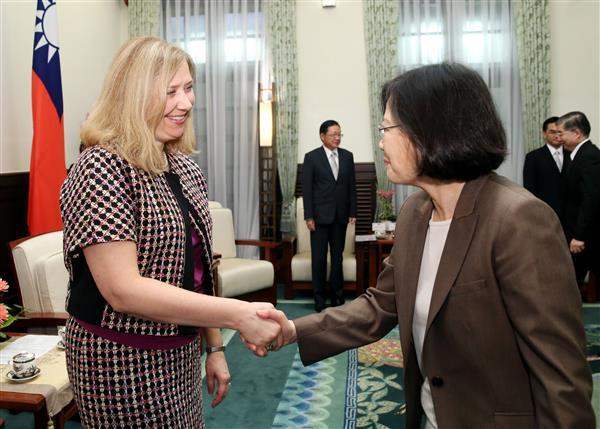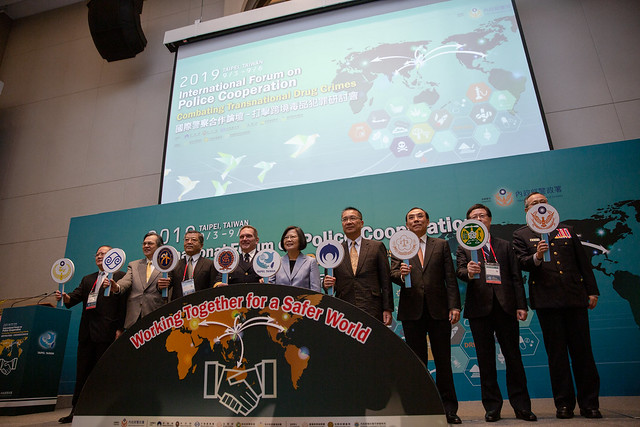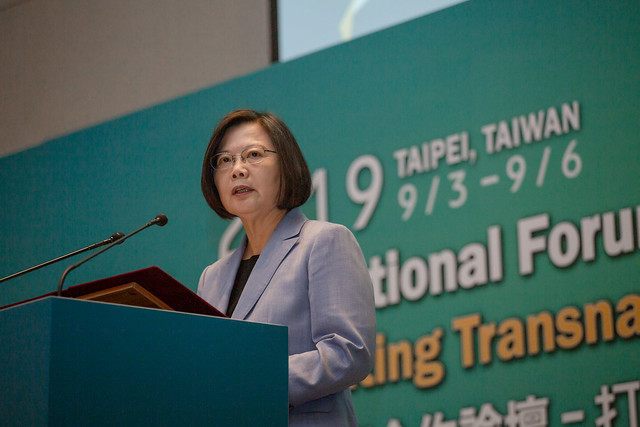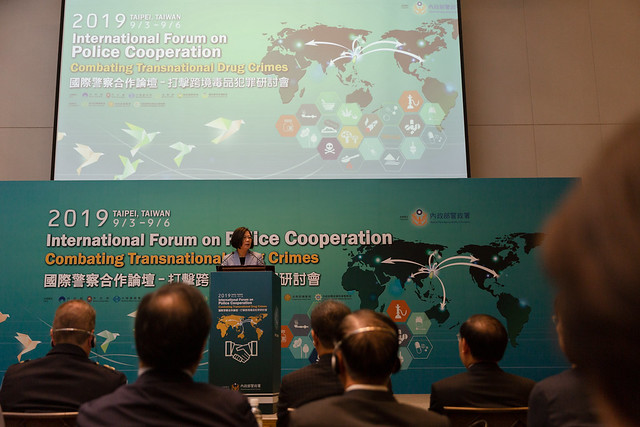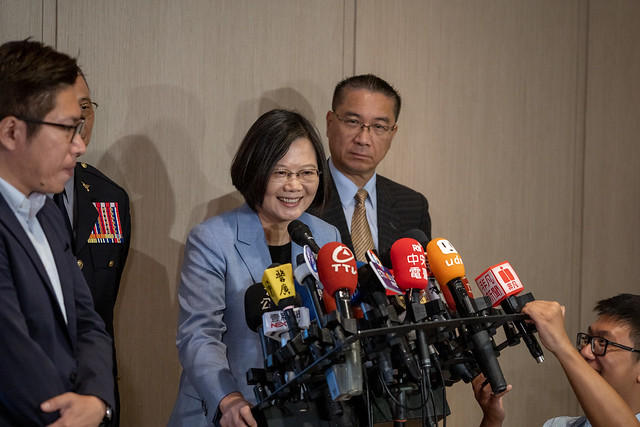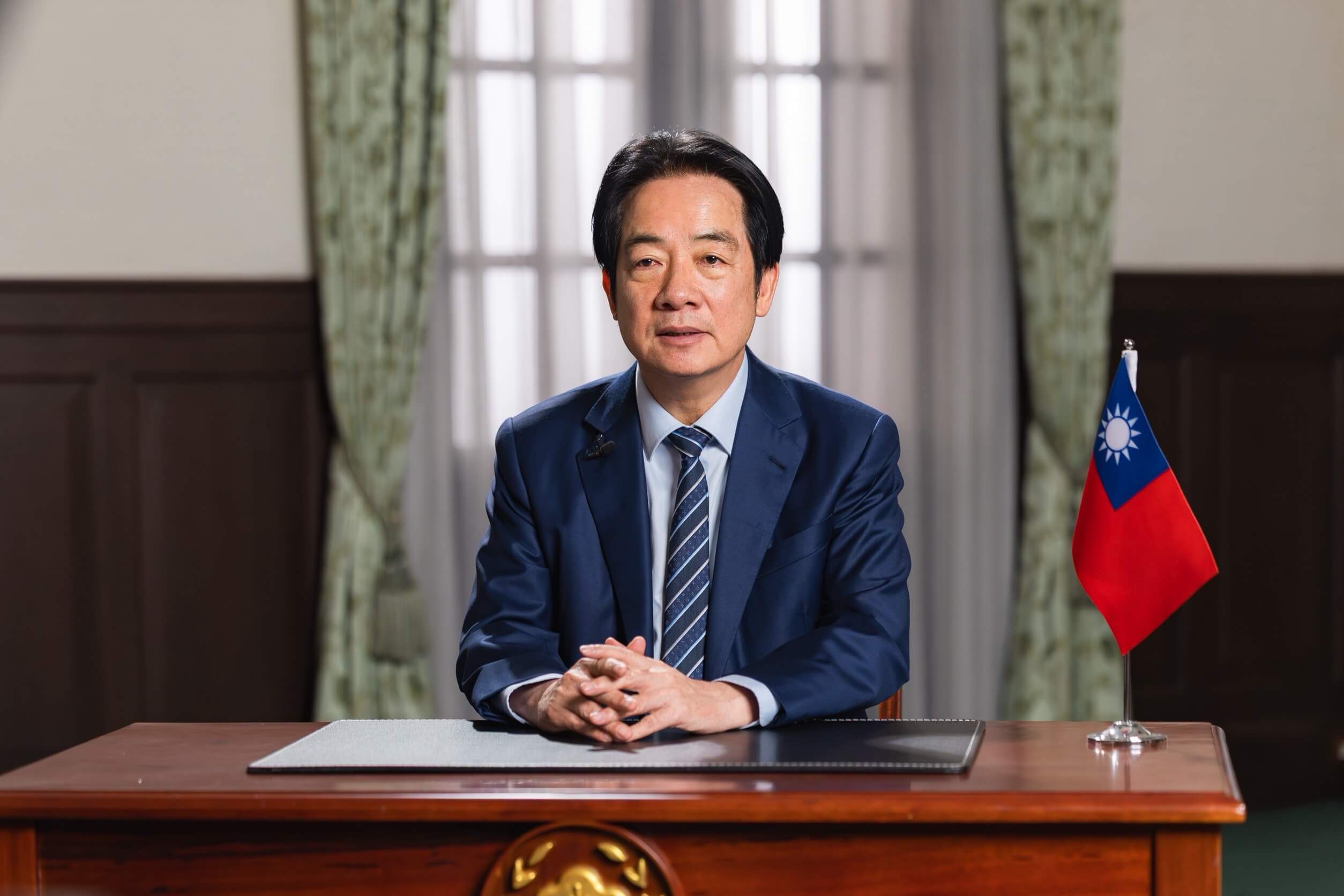News & activities
 News releases
News releases
While attending the 2019 International Forum on Police Cooperation: Combating Transnational Drug Crimes on the morning of September 4, President Tsai Ing-wen stated that in the future, we will continue to sign agreements on mutual judicial assistance, police cooperation, and joint crime-fighting with countries around the world. We will continue to deepen cooperative ties and work together to stop transnational drug crime, she said.
A translation of the president's remarks follows:
On behalf of the people of Taiwan, I would like to welcome all of you to this year's International Forum on Police Cooperation: Combating Transnational Drug Crimes. As anti-drug, law enforcement personnel and experts, all of you are crucial to the prevention of drug crime in your countries. You have worked tirelessly for years to crack down on drug crime and keep people safe from harmful drugs. I want to offer my utmost respect for your efforts and contributions.
We are grateful that this forum provides us with the opportunity to exchange ideas and learn from your expertise and experience, devise strategies to respond to drug crime trends, and explore investigative tactics and international cooperative models.
Drug-related issues are a collective challenge for the international community, and Taiwan is actively addressing them. Shortly after taking office, I announced that fighting drugs is the government's number one priority, and that I would not allow drugs to proliferate unchecked while in office.
Over the past three years, we have integrated capabilities across the government to work together to fight drugs. The overall number of first-time drug offenders is gradually decreasing. We have also brought the number of deaths caused by newly emerging narcotics under control.
We are also investing more manpower and resources into any area where we might fall short. This year, we established the Drug Prevention Fund, which works primarily with drug users to provide treatment for addiction and help them rejoin society, as well as working to eliminate youth drug use. We are also making it easier to devote private sector resources to anti-drug causes.
Domestically, we have stepped up enforcement by going out into the community and establishing an anti-drug reporting system that encourages citizens to report drug crimes, so that we can crack down on crime together. Internationally, we have worked with countries such as Japan, Korea, and Indonesia to bust a number of major international drug trafficking operations.
In the future, we will continue to sign agreements on mutual judicial assistance, police cooperation, and joint crime-fighting with countries around the world. We will also share our experiences in transnational drug crime investigation through police liaison officers stationed in these countries, so that we can make new law enforcement breakthroughs together.
Colleagues from all related ministries are here today, and I want to emphasize that we must spare no effort in the fight against drugs, not only to strengthen our own social security network, but also to contribute actively to the international community, and help establish a strong international security net. I want to ask all of you to give your utmost to accomplish this mission.
This forum also exemplifies the efforts Taiwan has put into strengthening international ties and contributing to the international community. I want to thank all of you for your support for Taiwan and the assistance you have given us. Together, let us continue to deepen our cooperative ties, and work together to stop transnational drug crime. Lastly, I want to wish you all a successful forum.
Among those attending the event were President Paul Cell of the International Association of Chiefs of Police, Minister of the Interior Hsu Kuo-yung (徐國勇), Minister of Justice Tsai Ching-hsiang (蔡清祥), Minister of the Mainland Affairs Council Chen Ming-Tong (陳明通), Deputy Foreign Minister Kelly Wu-Chiao Hsieh (謝武樵), Deputy Minister of Finance Wu Tzu-Hsin (吳自心), Director-general of the National Police Agency Chen Ja-chin (陳家欽), Minister of the Coast Guard Administration Chen Guo-en (陳國恩), and members of the diplomatic corps stationed in Taiwan.
After the event, President Tsai took questions from the media. In response to a question regarding Demosistō Secretary General Joshua Wong's call for Taiwan to amend and promulgate regulations regarding refugees, President Tsai stated that we staunchly support the Hong Kong people's pursuit of freedom and democracy. The concern of the Taiwanese people and the entire world for the situation in Hong Kong has been misconstrued as interference, but we have not interfered. Taiwan's current legislation already constitutes an adequate basis to provide assistance for Hong Kong people when necessary.
In response to rumors regarding the severance of diplomatic ties between Taiwan and the Solomon Islands, President Tsai stated that our diplomatic offices are closely following the situation in the Solomon Islands, and current bilateral exchanges and interactions are all normal.
